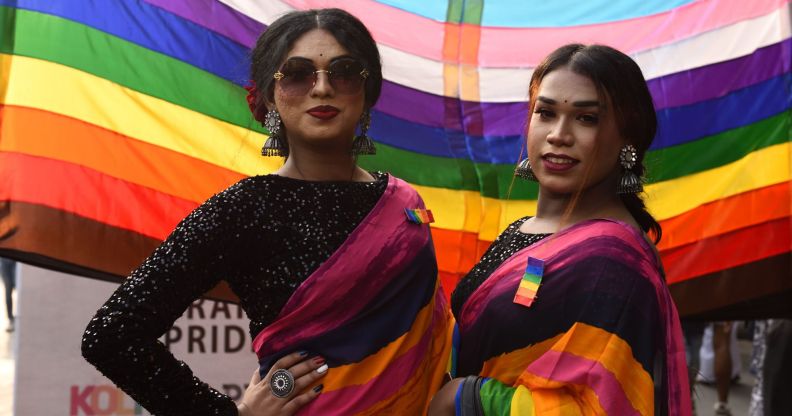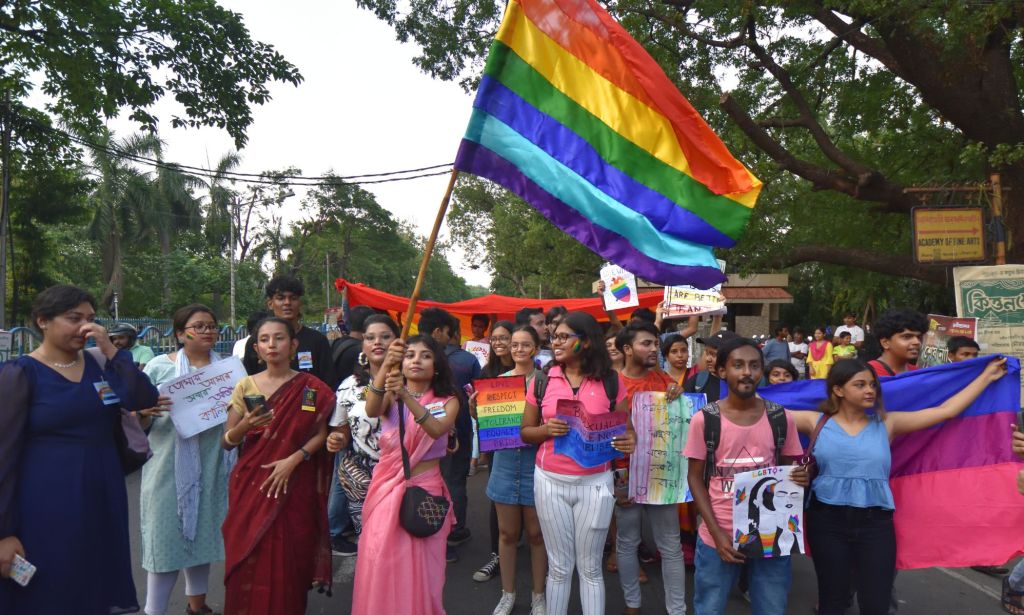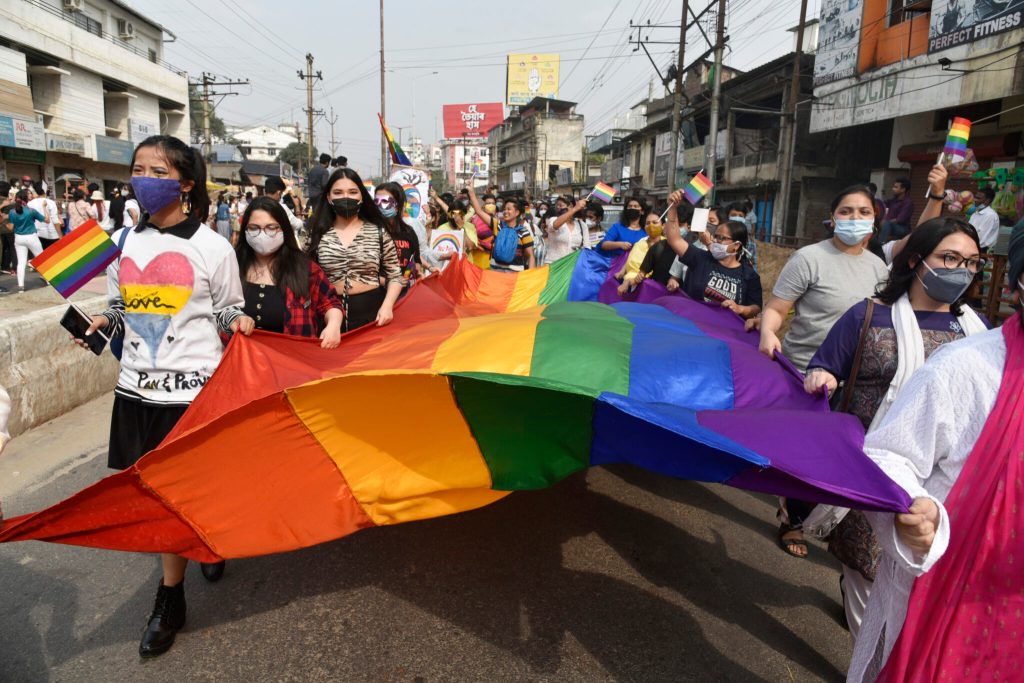India Supreme Court fails to legalise same-sex marriage

The Indian Supreme Court has ruled to legalise same-sex marriage. (Getty)
The Indian Supreme Court has ruled to legalise same-sex marriage. (Getty)
India’s Supreme Court has declined legalisation of same-sex marriage after a lengthy campaign, and public support, for a change in law.
The five-judge bench at the country’s top court, which included the chief justice of India, were divided over the decision and four separate judgments were written by the bench.
In the end, the judges issued a 2-3 decision and refused to recognise same-sex marriage, stating it was for the legislature to do rather than the courts.
However, the bench did emphasise the rights of the LGBTQ community to be free of prejudice and discrimination.
Delivering the judgement on Tuesday (17 October) Chief Justice of India Dhananjaya Yeshwant Chandrachud said there was a “degree of agreement and degree of disagreement” in the final ruling.
“Courts cannot make law but can interpret and give effect to it. The subject of queerness is not urban or elite.
“In the limited exploration of the literature on the subject, it makes it clear that homosexuality is not a novel subject. People may be queer, regardless of whether they are from villages or cities. Not only an English-speaking man can lay claim to being queer. It is also a woman working at a farm in a rural area,” Chandrachud said.
He went on to point out that the institution of marriage has changed in India, noting widow remarriage and interfaith marriage.
“The discussion demonstrates that the institution of marriage is not static,” he explained, “Marriage has metamorphised and has changed and it is an irrefutable truth and many such changes have come from Parliament. Many sections remain opposed to these changes, but still, it has changed.
“Thus, it is not a static or unchanging institution.”
However, whilst LGBTQ+ couples are free to celebrate their commitments to each other “in whichever way they wish” that “does not extend the right to claim any legal entitlement to any legal status for the same union or relationship”.

Other directions issued by the court to the government today included: to ensure that the queer community is not discriminated against, to sensitise the public to queer rights, to create safe houses and a hotline for members of the queer community, and to recognise a citizen’s right to enter into a union with their life partner.
Currently, queer couples in India are only permitted to be in “unregistered cohabitations”, meaning they can live together, but weren’t afforded the rights of heterosexual married couples.
Earlier this year, a series of petitions were filed by LGBTQ+ couples and activists, pleading for legal marriage recognition and arguing that India is a “marriage-based culture” in which LGBTQ+ people should be able to partake.
Petitioners have asked specifically for updates to be made to India’s 1954 Special Marriage Act (SMA).
However, the CJI ruled today that the Supreme Court could not update or strike down the SMA.
The SMA legislation currently allows for inter-faith and inter-caste marriages. LGBTQ+ advocates have asked for a broader interpretation of the legislation to include same-sex marriage.
The Indian government had opposed these pleas, describing the calls for legal same-sex marriage as “urban elitist” and declaring that a same-sex union is not “comparable with the Indian family unit concept of a husband, a wife, and children.”
Furthermore, it claimed that legalising same-sex marriage “seriously affects the interests of every citizen.”
It even argued that the court had no right to take on the case in the first place and that same-sex marriage was an issue for parliament to decide on.
Chief Justice Chandrachud dismissed the Indian government’s claims in today’s ruling, stating that queerness is neither urban nor elite, and to claim so is to erase LGBTQ+ people.

Leaders from all of India’s main religions also united to oppose same-sex marriage, arguing that marriage was for “procreation, not recreation,” per The Hindu.
Nonetheless, the five Supreme Court judges took the case, promising not to interfere with religious personal laws, but to look at whether the likes of the SMA could be updated to include LGBTQ+ people.
If same-sex marriage is fully legalised, India’s family laws would need to be updated to allow millions of LGBTQ+ Indian people the legal right to marry.
It would, as a result, allow LGBTQ+ people in India to take the status of “spouse” for financial, medical, insurance, and inheritance matters.
At present, just two Asian countries recognise same-sex marriage, those being Taiwan (2019) and Nepal (2023).
India’s Supreme Court ruling comes as the country slowly starts to display more accepting pro-LGBTQ+ rhetoric, following a 2018 Supreme Court ruling to scrap its colonial-era criminalisation of gay sex.
This June, a Pew survey found that 53 per cent of Indian adults believed that same-sex marriage should be legalised.
Although the Indian government claimed in 2012 that the country has an LGBTQ+ population of about 2.5 million, local activists have calculated, based on global estimates, that LGBTQ+ people actually account for at least 10 per cent of India’s population, which would bring that number up to about 135 million.

